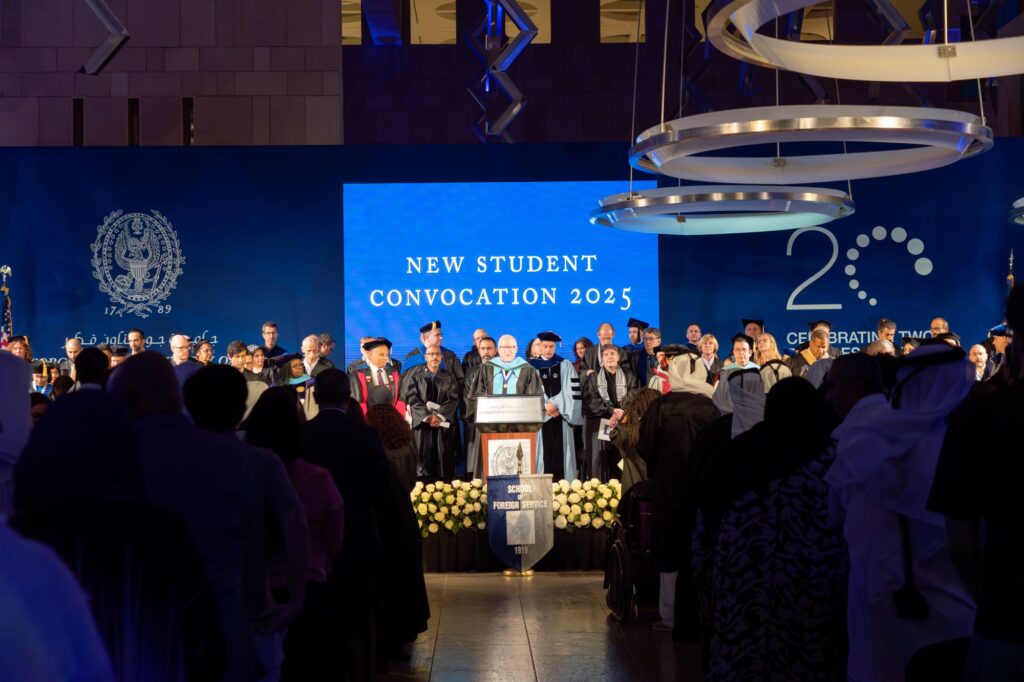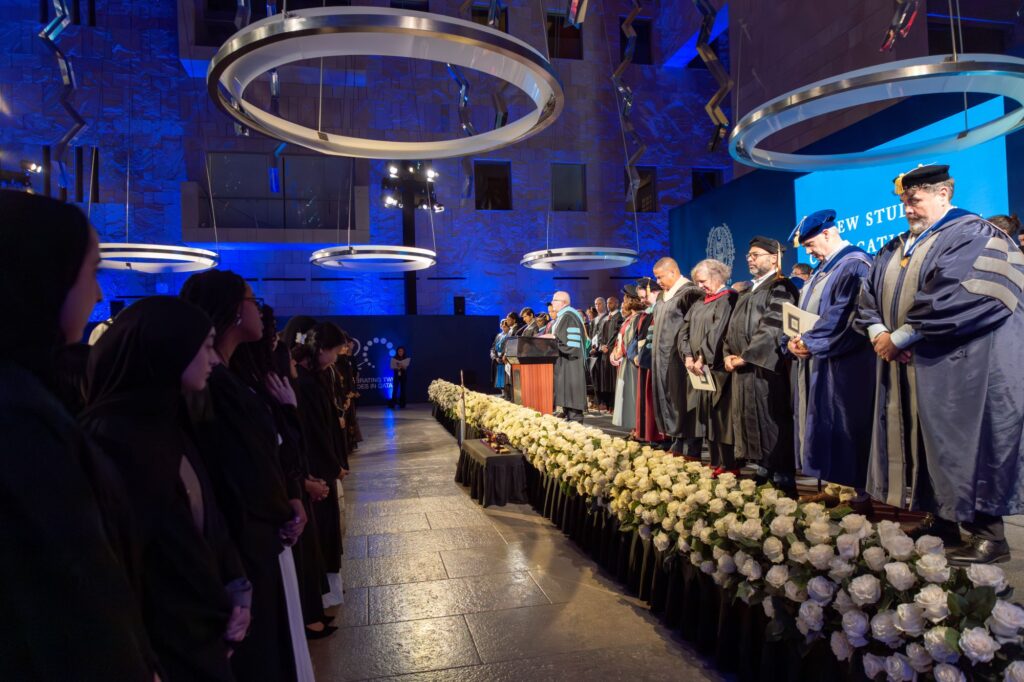“Like Coming Home”: Fr. Ryan Maher on Being the First Jesuit Assigned to Qatar, and His Return 20 Years Later
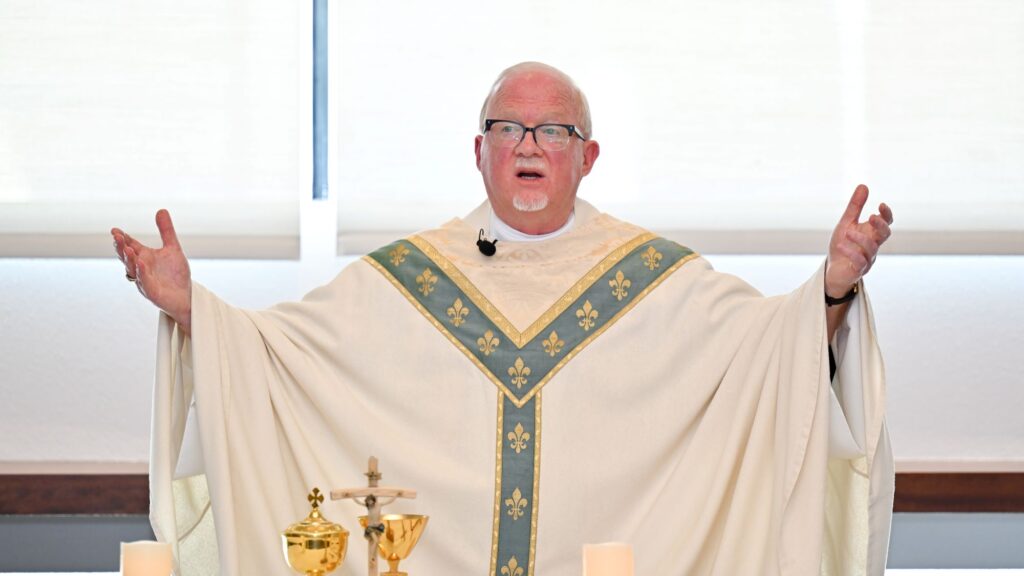
Father Ryan Maher, SJ, EdD, spent two years in Qatar from 2005-2007 as a founding faculty member at Georgetown’s campus in Doha. A Jesuit priest and Georgetown alumnus, he has spent four decades in Jesuit schools, serving as an academic dean in both the School of Foreign Service (SFS) and the College of Arts and Sciences. This year, he returned once again to GU-Q to teach and share the Jesuit values at the heart of a Georgetown education.
How did you first come to Georgetown University in Qatar?
In the early 2000s, I was having dinner with SFS Dean Bob Gallucci, and he mentioned that the university was in negotiations with the Qatar Foundation. I said, “That sounds fascinating.” He asked, “Would you ever be interested?” I said, “Well, yeah, if anything ever comes of it, let me know.”
Fast-forward two or three years. GU-Q Founding Dean Jim Reardon-Anderson showed up at my office door one Monday in April 2005 and said, “You’re not going to believe it, but they signed the deal. We have to open in August.” I thought he was kidding. He asked, “Can you leave on Friday?” So that Friday, a group of us flew to Doha.
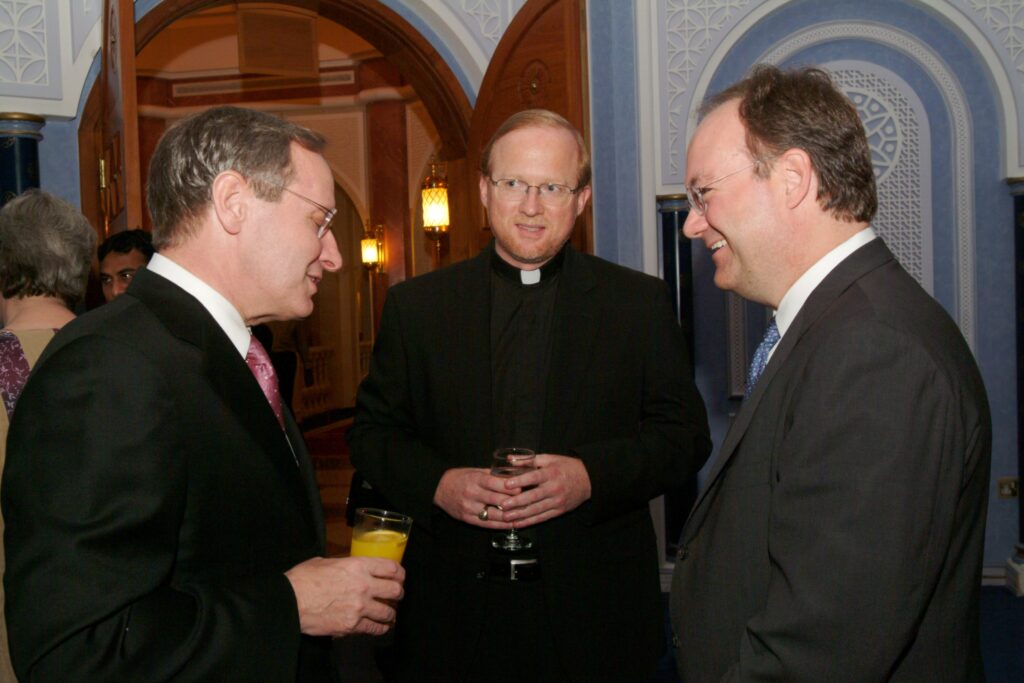
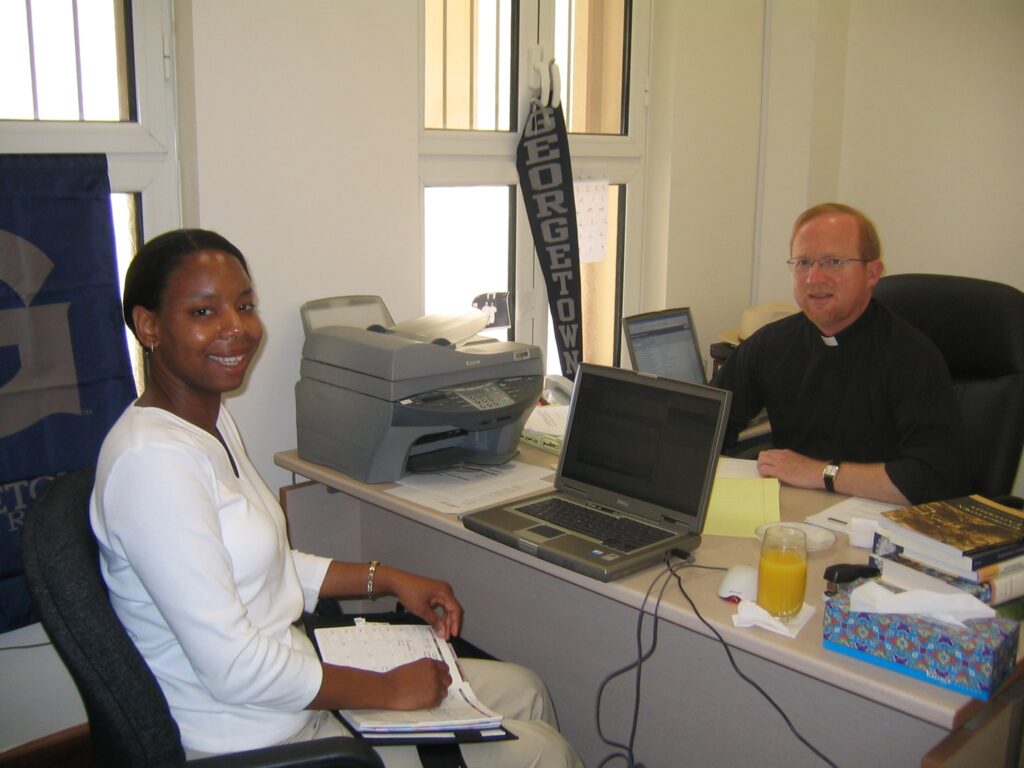
What do you remember from those early days?
We needed 25 students, but we had zero. So we split up across the Middle East—Doha, Cairo, Alexandria, Amman, Beirut —and began interviewing.
I remember interviewing one Qatari student in my office. He was in a thobe, I was in a Roman collar. At the end of the interview he asked, “What are you doing here?” I laughed and said, “Honestly? Because it feels quintessentially Georgetown to be here. And, I’ve never in my life had a conversation with someone dressed like you.” He said, “Well, I’ve never had a conversation with someone dressed like you.” I replied, “Welcome to Georgetown.” A lighthearted moment, but deeply serious—a moment I’ll never forget.
What was it like to live in Qatar and help build the university?
I was loaned to the project for two years, and actually, I was the first Jesuit ever assigned to Qatar. A Jesuit friend once told me, “That’ll be a great line for your obituary.”
It was my first experience in an expat community. People who uproot themselves and live abroad tend to have an adventurous spirit. I learned to really love that. We were a small team, so everyone pitched in. The students, too, were pioneers—adventurous, open-minded, willing to take a risk on a brand-new campus.
What was it like to teach “Problem of God” in a Muslim Country?
There was understandable nervousness about bringing a required theology course from a Catholic university into Qatar. To ease that, we started with a proseminar in the fall, where I taught literature and academic skills. That built trust, so by spring, there was no tension, just honest engagement. I very much saw the overlap between Jesuit values and Qatari/Muslim values—respect for family, belief in God, commitment to justice.
How did those years affect your ministry?
They changed my life. It’s one thing to ‘know about’ Muslims, another to actually know and befriend Muslim students. My faith was deepened through their honesty and openness. I keep a quote from Pope Francis on my shelf: “I have a dogmatic certainty: God is in every person’s life.” Teaching here made that real for me.
What changes did you notice when you returned for later anniversaries?
The growth has been astonishing. When we began, we imagined maybe 50 students per class. Now it’s much bigger. And the diversity is incredible—students from 40 or 50 countries, often only two from each. That makes for extraordinary classroom conversations. Doha itself has also transformed, but despite the growth, GU-Q still has the pioneering spirit of those early years—the energy, the freshness.
How does it feel to be back again?
Like coming home. The buildings are bigger, the student body larger, but the spirit feels the same as it did in 2005.
I also reconnected with some of my early students. Khalid Al-Jufairi from the inaugural class is now teaching at GU-Q. I remember him as a student—curious, upbeat, full of energy. To see him now at the front of the classroom—it makes me smile. From my second year, I reconnected with Hadi Darvishi, now General Manager of the Qatar National Convention Centre. He came running up to me in the cafeteria, and we exchanged a big hug. It’s gratifying seeing these kids again. It’s an example of the hopes we had for the seeds we were planting 20 years ago. They’re sprouting up all around us now.
You were here for the Israeli bombing of Qatar. What do you remember from that moment?
Everybody who was still in the building emptied into the atrium. While there were pockets of kids who were upset, the overwhelming vibe in the room was that they felt safe, at home, taken care of, and part of a group, which I found very gratifying. Part of the reason why I think Georgetown does well in these kinds of moments comes from our ethos of community and common humanity: we’re supposed to respect and take care of one another.
Why does that ethos of the Georgetown education matter today?
The world needs people who can think critically, act ethically, and engage across difference. Our students aren’t just learning about international affairs; they’re living them in a classroom with peers from every continent. They graduate ready to lead with both competence and conscience. And that’s more urgent today than ever.
What advice do you have for faculty and staff carrying on this vision?
Never lose sight of the fact that what we’re trying to do is help form a certain kind of human being—empathetic, concerned about justice, open to new ideas and cultures, looking to maximize the good in the world, seeking to serve the common good. Keeping that is like holding water in your hands—it can easily slip out. You can easily become nothing more than a pre-professional school that trains really competent people to do a certain job or pursue a certain career. But to my mind, that would be a huge loss.
As a Jesuit, I’d also encourage the community to always be open to the idea that we do this work because the formation and education of good human beings is what God wants for the world. If we don’t lose sight of that, I think we’re guaranteed to succeed.
